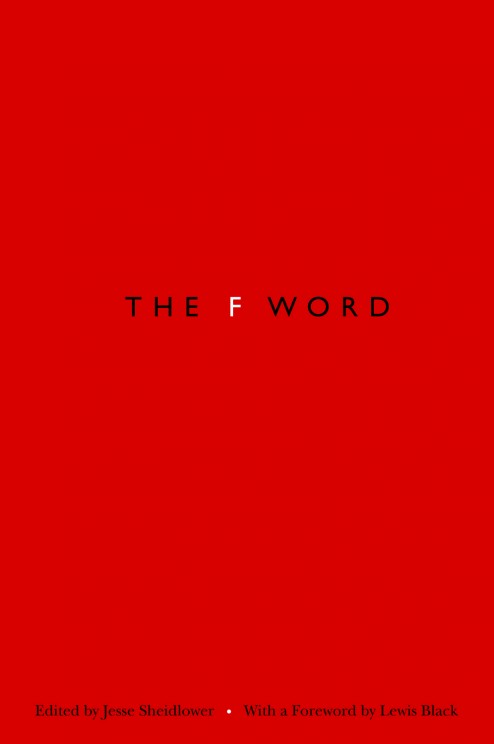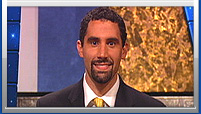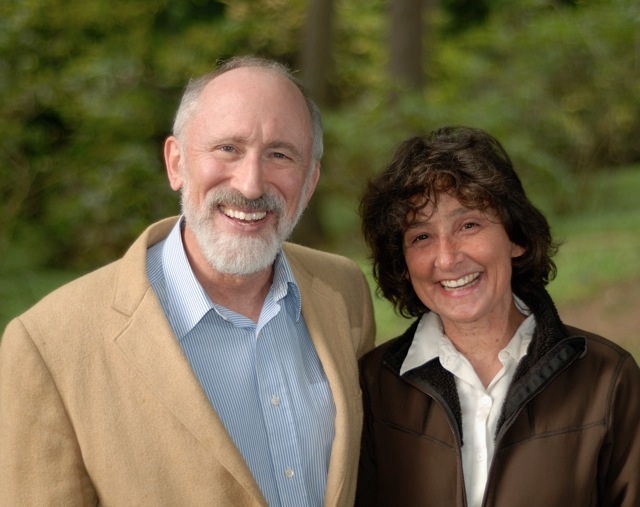 Ever since DC Comics launched the ‘New 52′ — a renumbering of its first issues along with same day digital downloads (its sales have transformed! “Justice League” has already sold 200,000 copies compared to 46,000 in the old... Read the rest of this post
Ever since DC Comics launched the ‘New 52′ — a renumbering of its first issues along with same day digital downloads (its sales have transformed! “Justice League” has already sold 200,000 copies compared to 46,000 in the old... Read the rest of this post
Viewing: Blog Posts Tagged with: jesse, Most Recent at Top [Help]
Results 1 - 6 of 6
Blog: Ypulse (Login to Add to MyJacketFlap)
JacketFlap tags: Disney, MTV, hulu, WordPress, Millennials, Jesse, Ypulse Essentials, dc comics, aol, Lionsgate, jennifer lopez, cambio, getglue, klout, Justice League, "Blog With a Dog, "Chaos Walking", ad swap, DirecTV, magazines launch e-commerce, Tiger Beat Entertainment, Add a tag
Blog: Galley Cat (Mediabistro) (Login to Add to MyJacketFlap)
JacketFlap tags: Gertrude Chandler Warner, Open Road Integrated Media, Children's Books, Deals, Benny, eBooks, The Boxcar Children, Patricia MacLachlan, prequel, Jesse, Violet, Albert Whitman & Company, Henry, Add a tag
 Newbery Award winner Patricia MacLachlan (pictured, via) has signed up with Albert Whitman & Company to write a prequel for Gertrude Chandler Warner‘s popular kidlit series, The Boxcar Children.
Newbery Award winner Patricia MacLachlan (pictured, via) has signed up with Albert Whitman & Company to write a prequel for Gertrude Chandler Warner‘s popular kidlit series, The Boxcar Children.
The not-yet-titled project will be released in September 2012 for the 70-year anniversary of the book’s debut. An eBook version will be published simultaneously from Open Road Integrated Media.
MacLane gave this quote in the press release: “Henry, Jessie, Violet, and Benny are kind to one another and embody the true sense of family. They are resourceful and positive. I find them both true children and true heroes at the same time. It occurs to me that perhaps their parents were the same. I’m looking forward to exploring that idea and more.”
New Career Opportunities Daily: The best jobs in media.
Add a CommentBlog: OUPblog (Login to Add to MyJacketFlap)
JacketFlap tags: ben daniels band, benjamin kabak, charles komanoff, david barash, geek out, gelf magazine, george goethels, scott allison, second avenue sagas, vincent valk, podcast, Sociology, heroes, A-Featured, Lexicography, A-Editor's Picks, Psychology, jeopardy, geeks, Jesse Sheidlower, Naked City, Sharon Zukin, mta, The Oxford Comment, oxford comment, naked, jesse, sheidlower, lipton, barash, judith, Add a tag
In the second episode of The Oxford Comment, Lauren Appelwick and Michelle Rafferty celebrate geekdom! They interview a Jeopardy champion, talk sex & attraction with a cockatoo, discover what makes an underdog a hero, and “geek out” with some locals.
Subscribe and review this podcast on iTunes!
Featured in this podcast:
Jesse Sheidlower, Editor-at-Large (North America) of the Oxford English Dictionary, author of The F-Word
* * * * *
Matt Caporaletti, “Advertising Account Supervisor from Westwood, NJ,” Jeopardy champion
* * * * *
David P. Barash and Judith Lipton authors of Payback: Why We Retaliate, Redirect Aggression, and Take Our Revenge
* * * * *
Scott T. Allison and George R. “Al” Goethels, authors of Heroes: What They Do and Why We Need Them. Check out their heroes blog!
Blog: illustration pages (Login to Add to MyJacketFlap)
JacketFlap tags: Jesse, P, facebook pages, Payne, painter, Add a tag
If you’re familiar with the grotesque heads of Leonardo da Vinci then you know where the inspiration for these drawings originated. These grotesque heads are the creation of Savannah, Georgia artist, Jesse Payne. Unlike the gestural pen drawings of Leonardo da Vinci, Jesse’s drawings were created using various graphite pencils and offer far greater detail than the originals.
Jesse Payne’s creatures are truly disturbing to look at. Every hair, wrinkle, blister, and pore of their skin has been carefully considered and rendered with extreme detail. You can almost smell the stench of their hot, stale breadth and musty clothes. And there’s no background to these images. It gives the sense that these people could be standing anywhere, in a dark closet ready to pull you in as you open the door or behind you now as you read this post. Can you feel the tingling on the back of your neck?
Have a look at Jesse Payne’s Facebook page for other incredible drawings he has posted. There he has portraits that are literally melting off the page – a very interesting and unique concept.
Blog: OUPblog (Login to Add to MyJacketFlap)
JacketFlap tags: slang, English, oed, oxford english dictionary, Dictionary, The F-Word, Jesse, swearing, profanity, Jesse Sheidlower, obscenities, Sheidlower, F Word, Reference, The, Oxford, A-Featured, Lexicography, Dictionaries, Add a tag
Lauren, Publicity Assistant
Jesse Sheidlower is Editor at Large of the Oxford English Dictionary and author of The F-Word. Recognized as one of the foremost authorities on obscenity in English, he has written about language for a great many publications, including a recent article on Slate. Here, Jesse discusses the criteria for including certain words or obscenities in dictionaries. Watch the video after the jump.
WARNING: This video contains explicit language. Click here to view the embedded video.
Blog: OUPblog (Login to Add to MyJacketFlap)
JacketFlap tags: oed, dictionary, ammon shea, jesse, curse words, scumbag, precocious, foul, 1971, bandied, prophylactic, jurgen, reading, A-Featured, Lexicography, Dictionaries, Add a tag
Ammon Shea
recently spent a year of his life reading the OED from start to finish. Over the next few months he will be posting weekly blogs about the insights, gems, and thoughts on language that came from this experience. His book, Reading the OED, has been published by Perigee, so go check it out in your local bookstore. In the post below Ammon reflects on his precocious childhood.
I’ve always known that I was a precocious child, and not in a good sense. One thing that I picked up at a remarkably early age was a firm grasp of vulgarity. Unlike many children, I did not simply parrot the taboo words I heard, but instead used them with intent and in context. At least, this is what I’ve been told – I was too young to remember.
I’ve heard my father many times describe the first time he heard me curse. I’d asked him for a hot dog, or some similar food in the supermarket, and he had said that we were going home to eat dinner, and so refused to get it. According to him, I then clenched my fists, stuck out my lower jaw, and bellowed “scumbag!” at the top of my lungs. I was not quite two years old.
I knew, and used, many other forms of foul language at an unusually young age, but it always seemed to me that my use of scumbag was the most unusual of them. This was not simply because I was saying it before I was two, but also because I was saying it in 1972, and the dictionaries I checked all date the use of this word in a pejorative sense from 1971. I was, I thought, truly on the cutting edge of offensive vocabulary, and I’ve always taken a perverse sort of pride in this.
I understand that words, especially slang and colloquialisms, are frequently in use verbally before they are found in writing, but even so I was always somewhat alarmed at how quickly I had adopted into my own vocabulary this prophylactic synonym after its entry into out language. Recently, however, I have discovered that it is somewhat older than I had always thought.
The OED lists scumbag (as a condom) from 1967, and as a term of opprobrium from 1971. But in an article in Slate magazine from 2006, Jesse Sheidlower notes that the dates for each of the two uses of the word have been pushed back to 1935 and 1950, respectively.
The business of antedating a word is a tricky one, and it seems that one can almost always find an earlier example of a word than was initially thought, as has been demonstrated by Jürgen Schäfer and many others. But the case of scumbag strikes me as odd. After all, its first appearance in the OED was in the supplement O – Scz, published in 1982. Was there really no one who worked on defining this word at the time who remembered it from their own childhood, or at least from a time prior to 1971? I suppose it is possible that they simply could not find any written citations prior to then, or that the word was not enough it common usage to have been part of the written record. But it also seems possible to me that the lexicographers, no matter how unflinchingly they dealt with this and all aspects of our language, did not come from an environment in which scumbag was bandied about as an acceptable colloquialism.
In any event, I’m very much looking forward to the new entry for this word when it appears in the current revision of the OED, even as it will conclusively dismantle one of my cherished childhood memories: I was not a linguistic wunderkind – I was merely a foul-mouthed and ill-mannered child.













